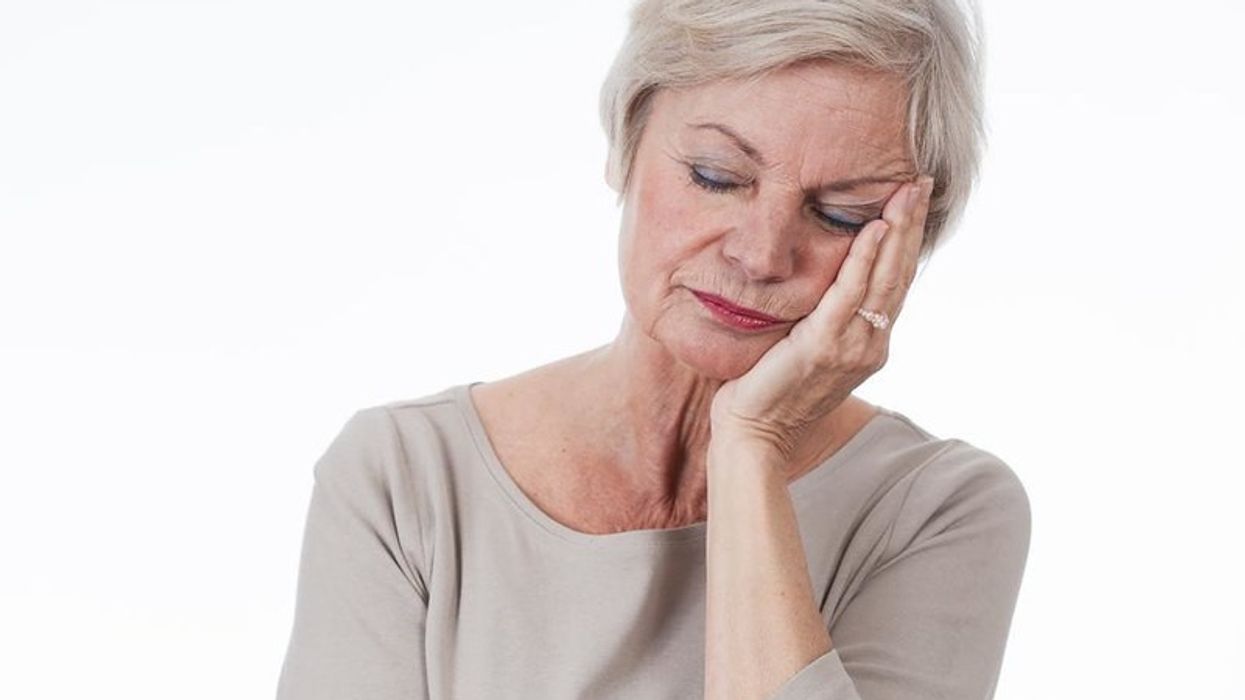The National Institute for Health and Care Excellence (NICE) has issued new draft guidance for the NHS, suggesting that women dealing with problematic menopause symptoms should have the option of receiving talking therapy, specifically cognitive behaviour therapy (CBT), in addition to or instead of hormone replacement therapy (HRT).
This guidance, marking the first update in nearly a decade, highlights that CBT can assist with managing issues like hot flushes, sleep disturbances, and mood changes, the BBC reports.
NICE believes that offering this choice will provide women with more alternatives. However, some critics have expressed disappointment with this recommendation.
According to NICE, there has been a clearer understanding of HRT since its last menopause guidance in 2015.
The updated guidelines outline the advantages and disadvantages of various available HRT formulations.
However, the new guidelines do not introduce any fresh recommendations regarding testosterone therapy, which certain menopausal women have sought from private clinics.
NICE advises women to select treatments from its guidelines that align best with their needs, evaluating the risks and benefits with the guidance of their physician.
NICE recommends using the lowest effective dose for HRT if individuals choose this option. The draft also suggests that women may consider individual or group talking therapy sessions, whether in-person or online.
Based on certain studies, CBT is indicated to teach coping skills that can alleviate menopause-related sleep issues, including improving the time it takes to sleep.
As women approach menopause, a stage marked by the permanent cessation of menstrual periods, their estrogen levels undergo fluctuations and decline. These hormonal changes often lead to troublesome symptoms.
HRT involves supplementing estrogen and occasionally other hormones, like progesterone, to alleviate symptoms experienced during menopause and maintain bone strength.
HRT comes in various formulations and delivery methods, such as oral tablets, skin patches, and gels. However, similar to any treatment, there may be side effects or heightened risks associated with its use.
The potential risks associated with HRT include several factors like increased likelihood of breast, ovarian, and uterine cancers and the possibility of blood clots, stroke, and dementia.
These risks vary significantly and depend on individual characteristics, including age, existing health conditions, and family history of these ailments.
For instance, women who have undergone a hysterectomy and no longer have a womb may not require additional progesterone alongside estrogen in their HRT as they are not susceptible to womb cancer.
NICE notes that among 1,000 women using estrogen-only HRT for ten years, there might be an estimated three extra cases of ovarian cancer on average.
In contrast, for 1,000 women using combined estrogen and progesterone HRT, there might be approximately one additional case.
According to NICE, using a skin patch or gel for the estrogen component in combined HRT does not heighten the risk of stroke, while taking it in tablet form slightly elevates this risk.
Additionally, if initiated after the age of 65, starting combined HRT may slightly increase the risk of dementia, the guidance said.
Testosterone, although primarily known as a male hormone, is also produced in women, and its levels can decrease during menopause.
There are claims from some women that taking testosterone alleviates several menopausal symptoms, such as brain fog.
NICE currently suggests considering it for low sexual desire if HRT alone proves ineffective. However, they do not recommend its use for other symptoms due to insufficient evidence.
Professor Gillian Baird, involved in crafting the guidance, highlighted its significance in providing evidence-based information for women and healthcare practitioners.
She emphasised that this guidance offers more choices for women to make informed decisions based on their individual circumstances.
The draft guidance is open for public consultation until January 5, 2024.
Dr Louise Newson, a GP and menopause specialist, expressed disappointment with the draft, noting that while CBT might help in managing some aspects of perimenopause, it might not improve every menopausal symptom or address underlying hormonal deficiencies.
Dr Newson also pointed out the absence of potential positive effects of HRT on conditions like heart disease and clinical depression from the document.
Highlighting the need for women's choices, she emphasised that those who wish to take HRT should have access to it, expressing concern that women are more commonly prescribed antidepressants than HRT.
The British Menopause Society welcomed the inclusion of CBT, emphasising its effectiveness and the importance of balancing the benefits and risks of HRT.




